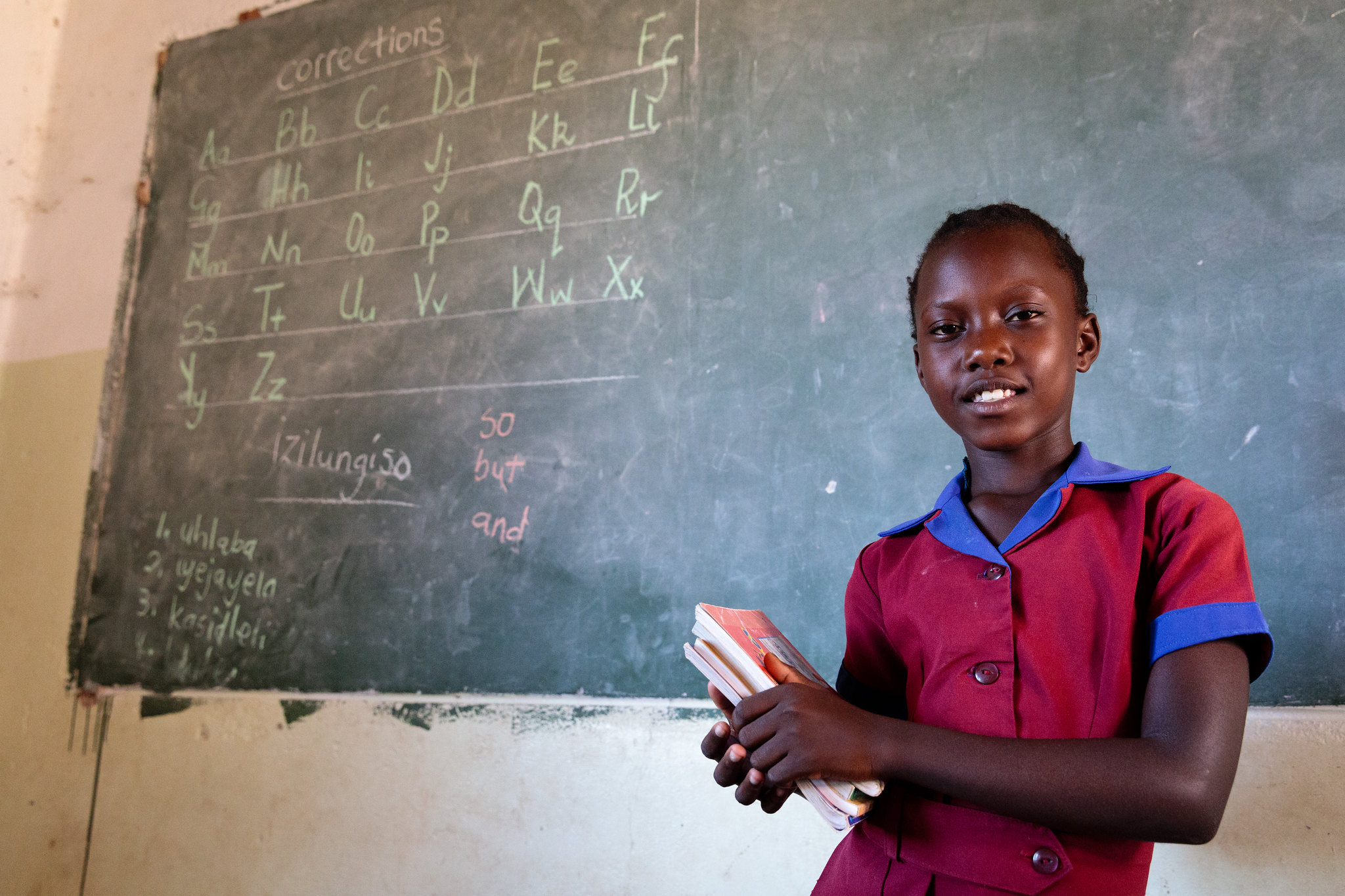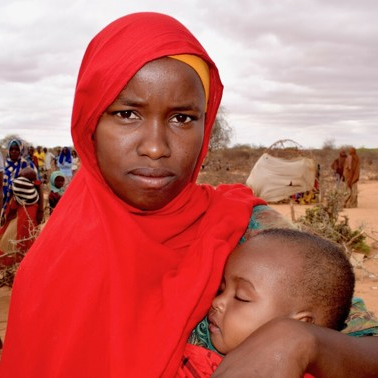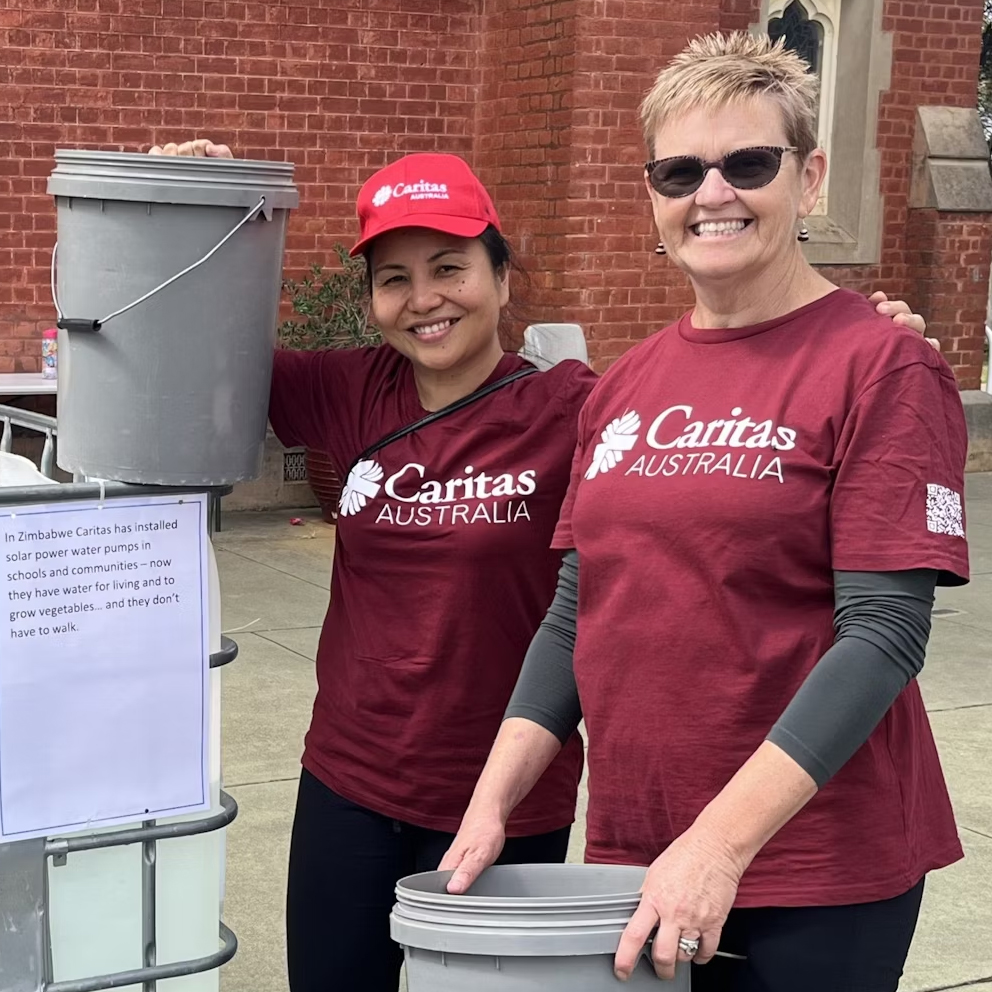Solidarity

Before the pipe was installed, Thandolwayo would miss school because she had to walk over 5 km a day to collect water. Now she is able to spend more time at school, and hopes to become a nurse. Photo: Richard Wainwright/Caritas Australia.
Teacher introduction
By the end of this unit, students will have explored the values of just leaders; investigated the call from Jesus for Justice; designed a personal leadership covenant; and participated in experiences of journaling and the Examen.
Teachers, before you start:
- Watch the CST ‘Solidarity’ film and familiarise yourself with the Lower Primary cartoon (found within the Learning Experience below).
- Download the various resources referenced at the bottom of this page (worksheets, slides, etc.) and have them ready to go on your computer/interactive whiteboard.
- Locate any Scriptures and copies of Church texts (all hyperlinked within the Learning Experience below).
- Familiarise and decide on the use of online or app technologies.

Students explore the values of just leaders.
Review Solidarity comic
Display the Solidarity poster
Students complete a Think Pair Share thinking routine, sharing their responses to the quotes and images on the poster.
Review that one way to show solidarity with all people is to be a good leader.
Briefly discuss: What makes a good leader?
Students examine page 1 of the Caritas values worksheet individually and select five values they most desire and five values they least desire. They place a tick next to the five most desired values and a cross on the five least desired values on the large class copy of the values chart. Students discuss the most and least desired values and offer reasons for the popularity or unpopularity of the values on the chart. They further discuss which values might be associated with just and unjust leadership.
Students explore the activities and values of local and international leaders to understand the many ways faith is lived out by believers past and present to shape a socially just world. They do this by completing the Leaders' Values Mapping Activity. They are each given a biography card to read and a glossary to explain unfamiliar terms about leaders and leadership. They make a decision about whether the leader has predominantly just or unjust qualities and justify their answer in a class discussion.
Students re-view the Caritas Values worksheet and map the qualities of each leader by ticking the values identified in the Bios from the previous activity. They use the Categorizing (p.2 of the Values map solidarity_UP_values_chart) values page to identify the most common categories 'just leaders' fall into.
They discuss how Just Leaders normally show the qualities of "Universalism" as opposed to unjust leaders who are more "Achievement" and "Power" focused.
Students create a large "working" Y chart for classroom display of the qualities, values, and actions of just leaders. Students add to the Y chart throughout the sequence.

Learn - Explore
Students investigate the call from Jesus for Justice.
Students think about what guides Christian leaders. They read Matthew 25: 31-40 whilst viewing the Caritas powerpoint.
Explain that Catholic Church teachings based on this Scripture are called the Spiritual and Corporal Works of Mercy. Spiritual and corporal works of mercy are foundational for understanding the Church’s teaching about concern for the common good. Concern for the common good means that the needs of all members of a group are taken into account. For example rules that are made or decisions taken about resources to be shared must take into account the good of all community members. The works of mercy are charitable actions at the service of others. The spiritual works of mercy are: instructing, advising, challenging injustice, consoling, comforting, forgiving, bearing wrongs patiently and praying for the living and the dead. The corporal works of mercy are: feeding the hungry, giving drink to the thirsty, sheltering the homeless, visiting the sick and imprisoned, clothing the naked and burying the dead.
Students work in pairs to find examples of works of mercy in the lives of believers.
Discuss: How is this call to justice applied globally?
Examples may be found in Scripture, and in the work of Caritas Australia. Students discuss their examples and how it reflects Jesus' call for justice in Matthew 25: 31-40
Review the definition of solidarity: Everyone belongs to one human family, regardless of their national, religious, ethnic, economic, political and ideological differences. Everyone has an obligation to promote the rights and development of all peoples across communities, nations, and the world, irrespective of national boundaries. We are called by the principle of solidarity to take the parable of the Good Samaritan to heart (Luke 10:29-37), and to express this understanding in how we live and interact with others.
Discuss: How is our call for just leadership related to the idea of solidarity? How does /can the principle of solidarity affect our decisions?
Teacher note: For example, Caritas Australia expresses solidarity by reaching out to those who are most marginalised. We are committed to long-term engagement and sustainability.

Learn - Demonstrate
Students design a personal leadership covenant.
Students create their own definition of Christian leadership using a digital/ multimodal format that they will then share and present back to the class. The presentation will be a montage of images, quotes, phrases that students source and select to create their own personal reflection on what Christian leadership is in action. Title: “Who am I as a Christian leader?” Examples of things to include:
- Images of leaders they admire and why (not at a surface level – must include examples of values and qualities discussed previously)
- God-given talents and gifts that I’m grateful for and that demonstrate just leadership
- Areas to work on/focus on to improve
- Examples of how I could live God’s dream for a just world based on what I have learnt about Jesus’ Law of love, Catholic Social teaching, the works of mercy and the key messages of the Old Testament prophets)
- The most important value I think a leader should display
Students present their work to the class with a short justification for their choices.

Act
Explain how The Examen is a meditative prayer for Christians to reflect on how they have acted during that day, and what things they can improve on. Students think about ways that they may or may not have acted as a Christian/just leader today.
The Examen
The Examen could be prayer individually or as a class using the steps outlined below:
“Close your eyes and look through your heart…”
1.One person names the highs and lows of his/her day. (OR: names one value/quality of just leadership they displayed today, and one they would like to work on – they could pick something from their personal Christian leadership covenant)
2. After that person names the highs and lows of the day, another person in the class says a prayer for that person, thanking God for the highs and asking God to help that person with the lows.
3. Every class member gets a turn to share the highs and lows of the day, and every class member gets a turn to say a prayer for another person.
4. Close with an Our Father or another prayer such as the Oscar Romero prayer.

Pray
Students write an entry into their prayer or reflection journal about their experience of The Examen explaining how helpful it was as a tool for evaluating their responsibility as a just leader.
Related downloads:
- Values chart (PDF, 348KB)
- Leaders' Values (PDF, 577KB)
- Upper Primary Poster/Cartoon (PDF, 2.59MB)
- All Upper Primary 'Solidarity' resources (ZIP, 12.7MB)
- CST Prayer (PPT, 4.8MB)








